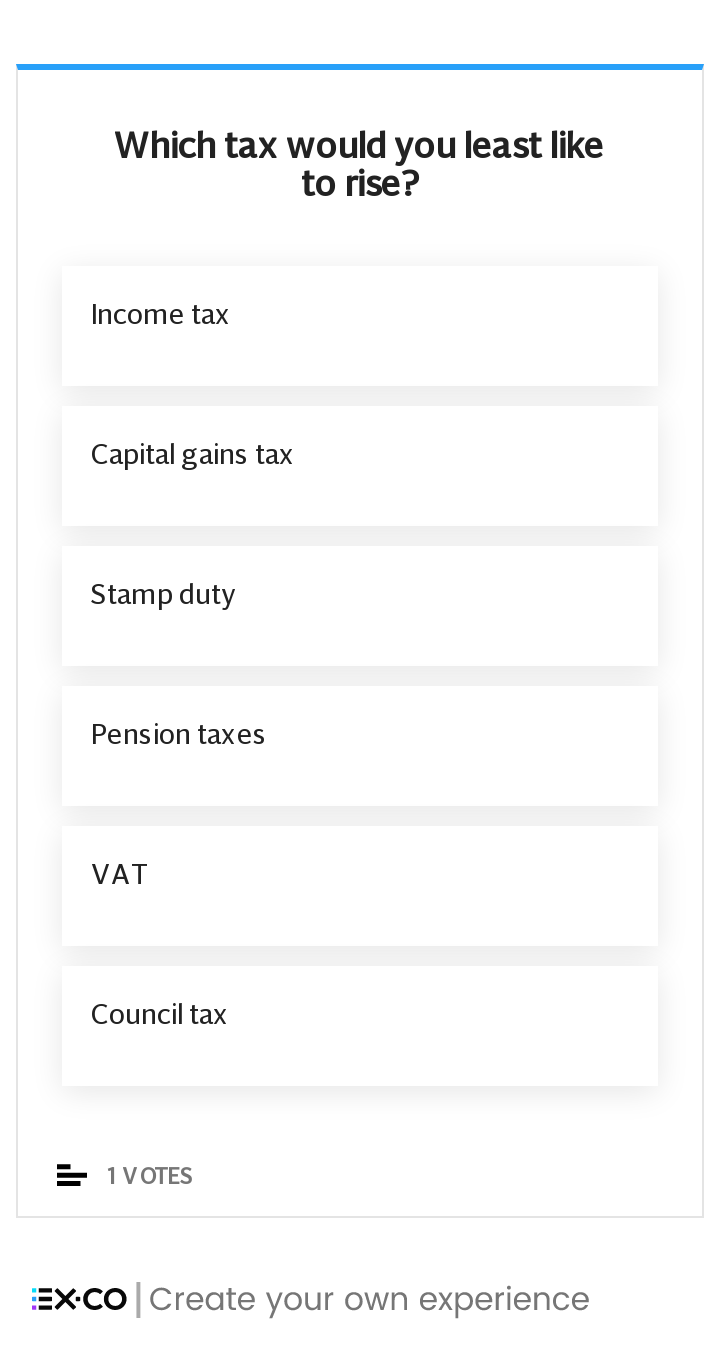‘Raise taxes by 10p in the pound for the wealthy’: most people, including Tory voters, support tax rises

The vast majority of British citizens would support a 10p in the pound increase in income tax for high earners, a report has claimed, as the country braces itself for major tax increases in the coming years.
Chancellor Rishi Sunak has warned the British public that taxes will need to rise to pay for the billions of pounds spent during the coronavirus crisis. However, there are major decisions to be made about how such tax increases would be applied.
Some feel that those with the largest salaries should be the primary targets of tax increases, although others believe such an action would harm wealth creation and damage the nation’s overall tax intake. Wealth taxes on properties or land may also be considered by the Chancellor.
A report by Demos, a think tank, found that more than half the population, including a majority of 2019 Conservative voters, supported progressive tax increases. It found that 58pc of the public would back an income tax rise of 2p in the pound – bringing the rates to 22pc, 42pc and 47pc – if the personal allowance was increased to £20,000 from its current level of £12,500.
In December’s election, the Conservatives won seats across the former Labour heartlands in the North and Midlands. Voters in these areas may be much more enthusiastic about tax rises than traditional Tory voters in wealthy areas of the South.
This could lead to some major tax changes being supported by the party’s new voters. Demos found that 70pc of all 2019 Conservative voters supported or strongly supported raising the income tax rate by 10p in the pound for those earning over £100,000 a year. Across the wider public, 69pc were supportive of this measure.
Income tax may not be the only target for Mr Sunak’s future tax rises. There has been speculation that the Chancellor may look to equalise the tax treatment of capital gains so it matches that of income earned from work.

Almost half (46pc) of the general public would support this measure, the report found, with 18pc opposing such a move. Conservative voters were more enthusiastic about this measure than the wider public, with 54pc supporting against 20pc in opposition.
In addition, 63pc of the public said that they were supportive of a one-off 10pc tax on wealth over £2m, excluding main homes and pensions. Only 11pc opposed this measure.
However, there are several areas where the public are hostile to any tax rises. A mooted social care tax, only payable by people aged 40 and over, was opposed by 45pc of taxpayers.
Major changes to pensions taxation were deemed unacceptable by 70pc of the population, with most believing that pensions tax rates should remain lower than other forms of income. There was support, however, for restricting the sums high earners could save into their pensions.
The report concluded that the Government could consider raising income tax for all workers who earn £20,000 or more, with the highest earners being hit with the largest increases. Council tax should be increased on the most expensive homes and VAT could be charged on private school fees and private medical fees, it said.
Loopholes that allow people to avoid tax should be closed and the Government should better communicate with the public about how taxes are raised and spent, avoiding so-called stealth taxes, it added.
The report said that while greater taxes on the poorest in society were unacceptable to the British public, "unnecessarily punitive taxes" on the wealthiest were also undesirable. There was also strong resistance to increasing the main rate of VAT or for charging capital gains tax on people's main residence.

 Yahoo Finance
Yahoo Finance 